Xanax Addiction: Signs, Symptoms, and Long-Term Effects
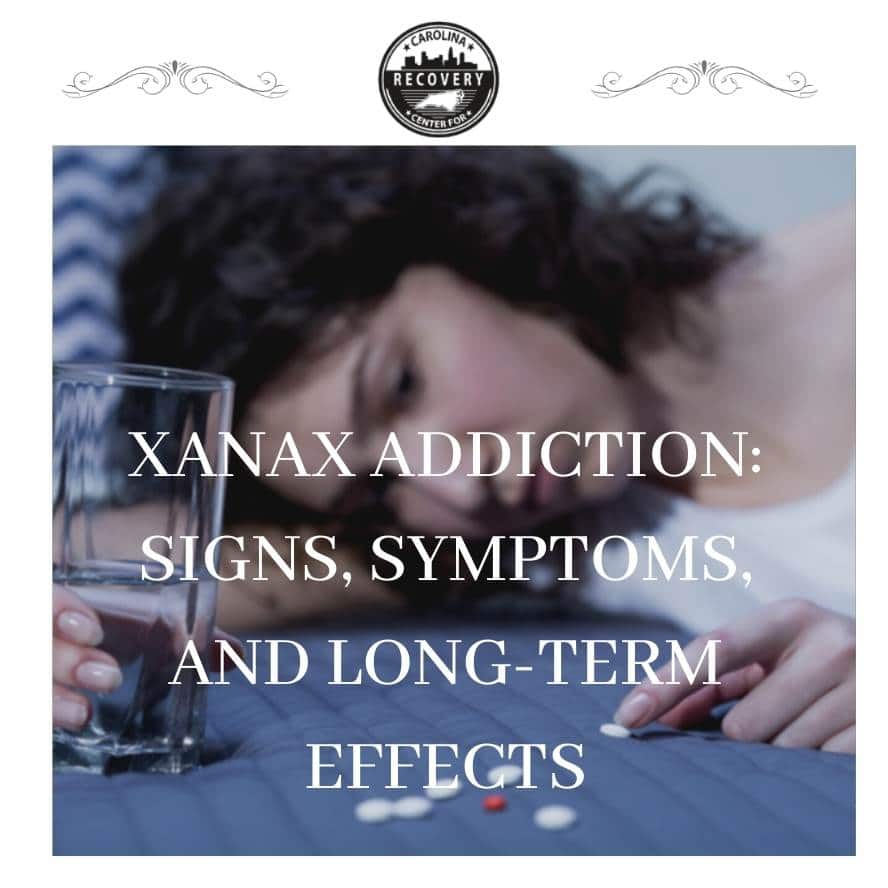
Medically Verified: 2/1/24
Medical Reviewer
Chief Editor

All of the information on this page has been reviewed and verified by a certified addiction professional.
Xanax (alprazolam) is a benzodiazepine medication that is used to treat anxiety disorders. It is a central nervous system depressant (CNS) that can be highly addictive if abused. People often mix Xanax with other substances like alcohol or opioids, which increases the risk of addiction and overdose.
Over the last five years, there has been an increase in benzodiazepine abuse, and Xanax is the most commonly abused benzodiazepine.[1] As a highly addictive and widely used drug, it’s important to be able to spot the signs and symptoms of Xanax addiction as well as understand the long-term effects of the drug.
Understanding Xanax Addiction: The Basics
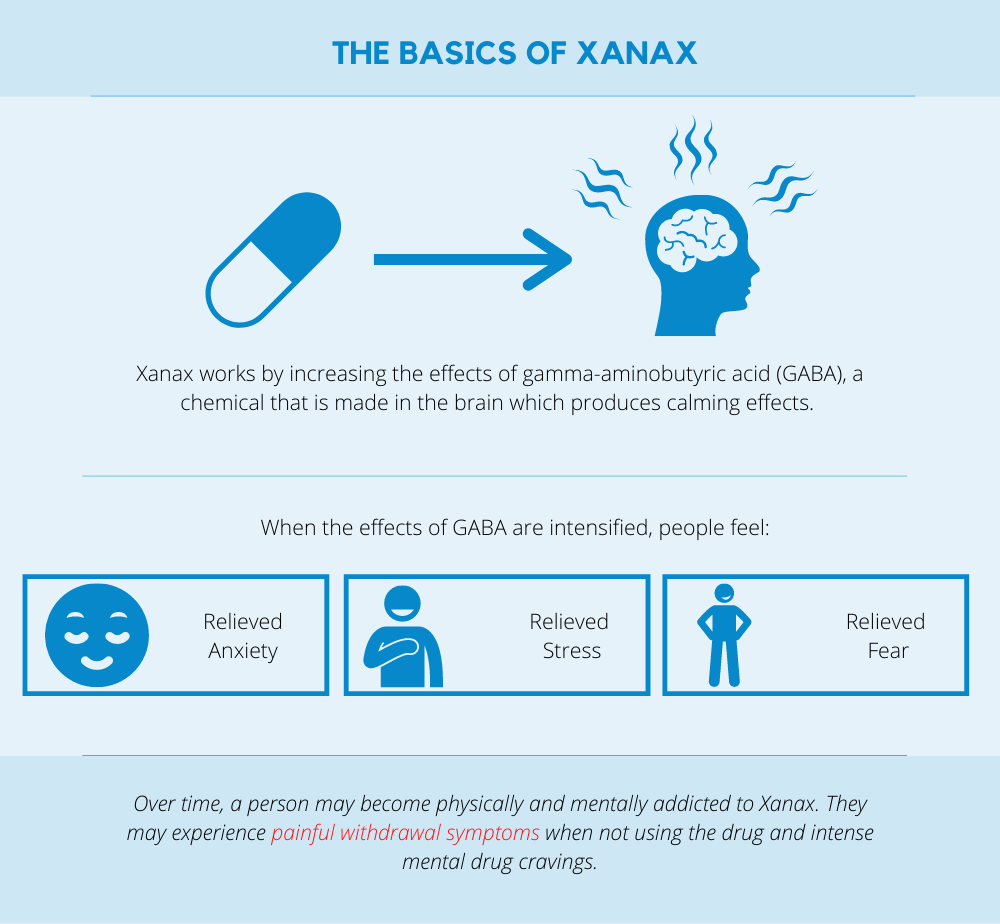
Xanax works by increasing the effects of gamma-aminobutyric acid (GABA), a chemical that is made in the brain which produces calming effects. When the effects of GABA are intensified, people feel relieved anxiety, stress, and fear.[2] While effective in treating anxiety disorders, many people abuse Xanax due to the calming effects it produces.
Over time, a person may become physically and mentally addicted to Xanax. They may experience painful withdrawal symptoms when not using the drug and intense mental drug cravings.
Signs of Xanax Abuse
Xanax slows down the central nervous system. It is widely known for producing memory loss and drunken behaviors. Oftentimes, due to reduced inhibition, Xanax intoxication can mimic alcohol intoxication.
People who are under the influence of Xanax may seem tired or distracted. They may have a loss of coordination and seem confused. They may even struggle to recall events or periods of time after abusing the drug. These individuals may be at risk of falling, breaking bones, getting into car accidents, and more.
Signs of Xanax Addiction
Additional are:
- Being unable to stop using Xanax despite wanting to
- Losing interest in activities one once enjoyed
- Continuing to use Xanax despite its effects on a person’s life and mental health
- Obsessing over using Xanax or spending a lot of time obtaining and using the drug
- Running into legal problems due to drug abuse
- Engaging in risk-taking behaviors like driving under the influence or or other drugs
- Experiencing withdrawal symptoms when not using Xanax
- Mixing Xanax with alcohol to enhance the effects
- Developing a tolerance to Xanax and needing to take more of it
Xanax Withdrawal Symptoms
During withdrawal, the brain experiences an absence of GABA because it has adjusted to needing Xanax in the system to use the neurotransmitter effectively. It also enters a state of over-excitement where the CNS is overactive. This can cause rebound symptoms and other withdrawal symptoms. Rebound symptoms are those that a person used Xanax to reduce that return after the person stops using the drug. This includes anxiety, panic, fear, and more. Other symptoms of include:[3]
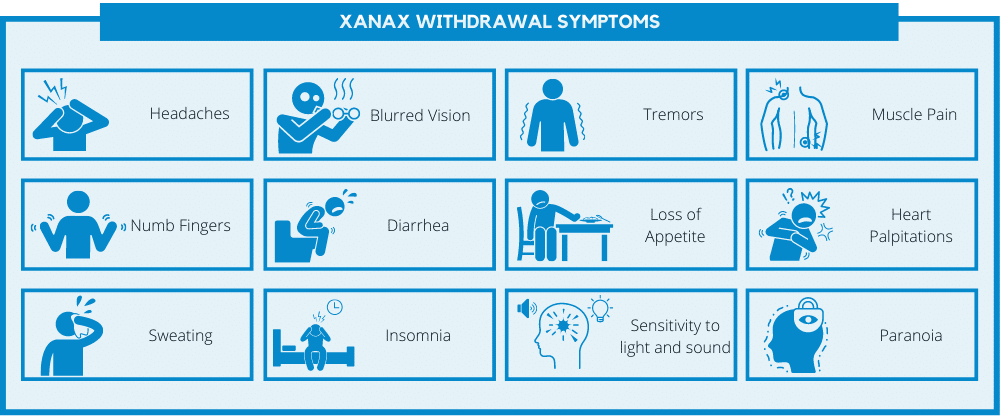
- Headaches
- Blurred vision
- Tremors
- Muscle pain
- Numb fingers
- Diarrhea
- Loss of appetite
- Heart palpitations
- Sweating
- Insomnia
- Sensitivity to light and sound
- Paranoia
Some people who detox from Xanax experience seizures that can be life-threatening. As a result, Xanax detox should always take place at a medical detox facility with around-the-clock support.
Dangers of Xanax Abuse: Counterfeit Pills, Xanax Laced With Fentanyl
Xanax isn’t only an addictive drug, it’s also a dangerous one. Taking Xanax in high doses, mixing it with alcohol or opioids, or using it on a low tolerance can easily lead to an overdose. Signs and symptoms of Xanax overdose include:
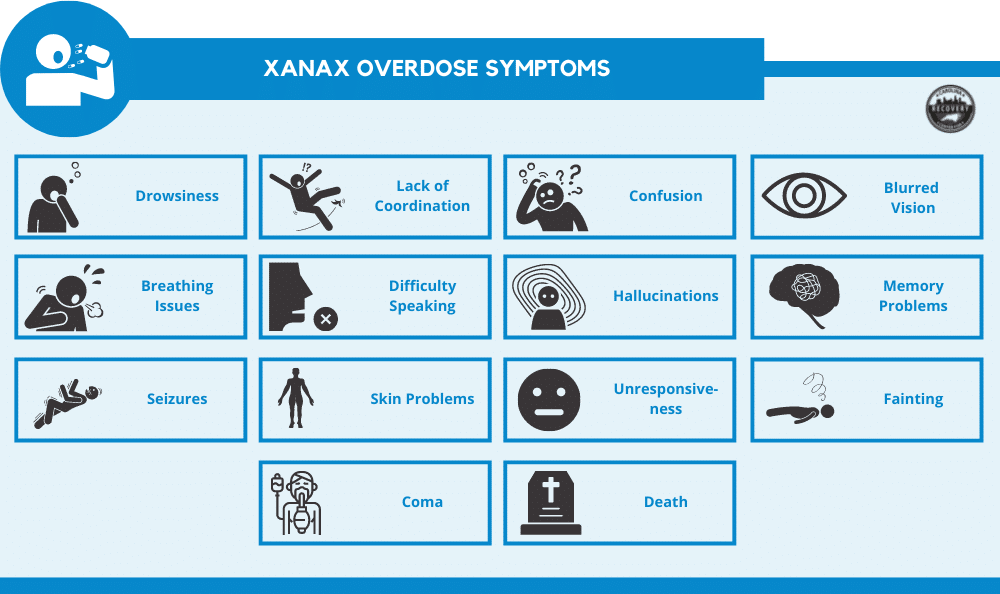
- Drowsiness
- Lack of coordination
- Confusion
- Blurred vision
- Labored breathing
- Difficulty breathing
- Difficulty speaking
- Hallucinations
- Memory problems
- Seizures
- Yellowing of the eyes or skin
- Unresponsiveness
- Loss of consciousness
- Coma
- Death
The United States has seen a significant rise in benzodiazepine overdoses in recent years. And, nearly 16% of all opioid overdose deaths involve benzodiazepines. Xanax is thought to be more toxic than other benzodiazepines in the event of an overdose.[4,5]
Another major risk that comes with Xanax addiction is the risk of obtaining counterfeit pills. People who purchase Xanax on the street can never guarantee exactly where their pills come from and whether or not they are real. And, many counterfeit Xanax pills sold in recent years contain fentanyl – an extremely dangerous opioid drug that significantly increases the risk of overdose.[6]
Long Term Effects of Xanax Addiction
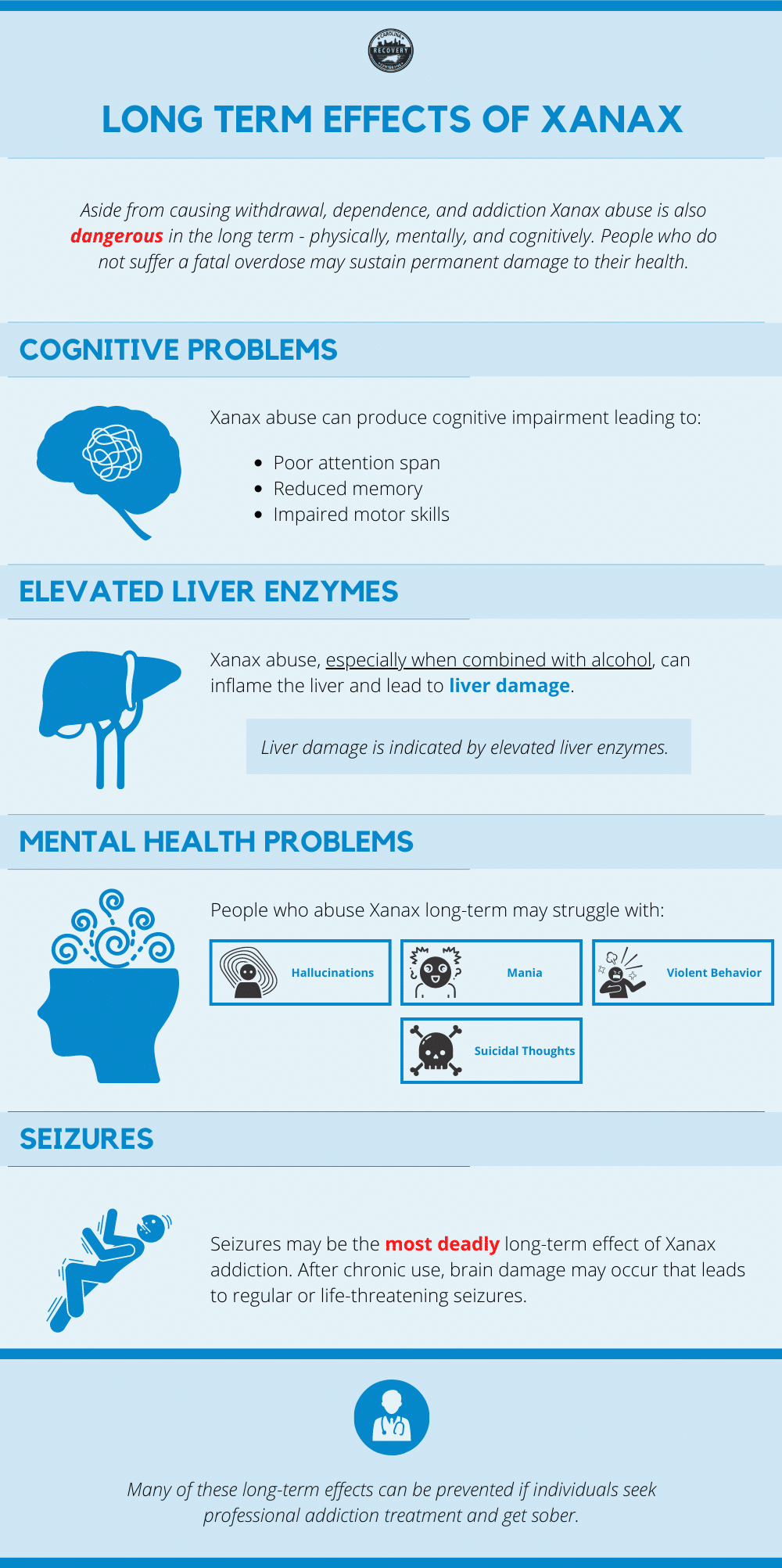
Aside from causing withdrawal, dependence, and addiction Xanax abuse is also dangerous in the long term – physically, mentally, and cognitively. People who do not suffer a fatal overdose may sustain permanent damage to their health.[7] A few long term effects of Xanax include:
- Cognitive problems – Xanax abuse can produce cognitive impairment leading to poor attention span, reduced memory, and impaired motor skills.
- Elevated liver enzymes – Xanax abuse, especially when combined with alcohol, can inflame the liver and lead to liver damage. Liver damage is indicated by elevated liver enzymes.
- Mental health problems – People who abuse Xanax long-term may struggle with hallucinations, mania, violent or aggressive behavior, and suicidal thoughts or actions
- Seizures – Seizures may be the most deadly long-term effect of Xanax addiction. After chronic use, brain damage may occur that leads to regular or life-threatening seizures.
Many of these long-term effects can be prevented if individuals seek professional addiction treatment and get sober.
Find Help for Xanax Addiction
Treatment for Xanax addiction involves medical detox, inpatient and outpatient rehab, and aftercare. However, the first step towards getting sober is asking for help. Call now to speak to one of our compassionate treatment specialists about starting rehab today.
References:
- https://www.ncbi.nlm.nih.gov/pmc/articles/PMC5846112/
- https://www.ncbi.nlm.nih.gov/books/NBK513311/
- https://pubmed.ncbi.nlm.nih.gov/7841856/
- https://www.ncbi.nlm.nih.gov/pmc/articles/PMC1884537/
- https://www.drugabuse.gov/drug-topics/opioids/benzodiazepines-opioids
- https://www.dea.gov/press-releases/2020/08/06/alarming-spike-fentanyl-related-overdose-deaths-leads-officials-issue
- https://www.aafp.org/afp/2013/0815/p224.html

